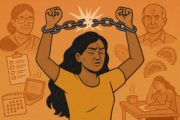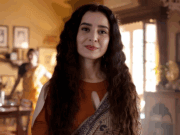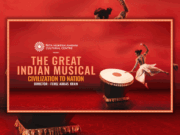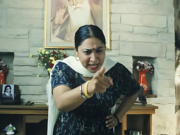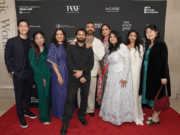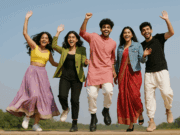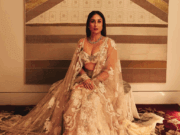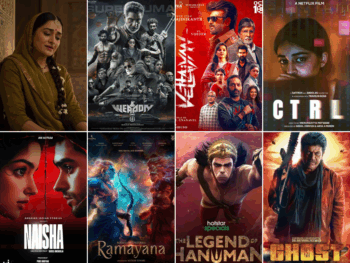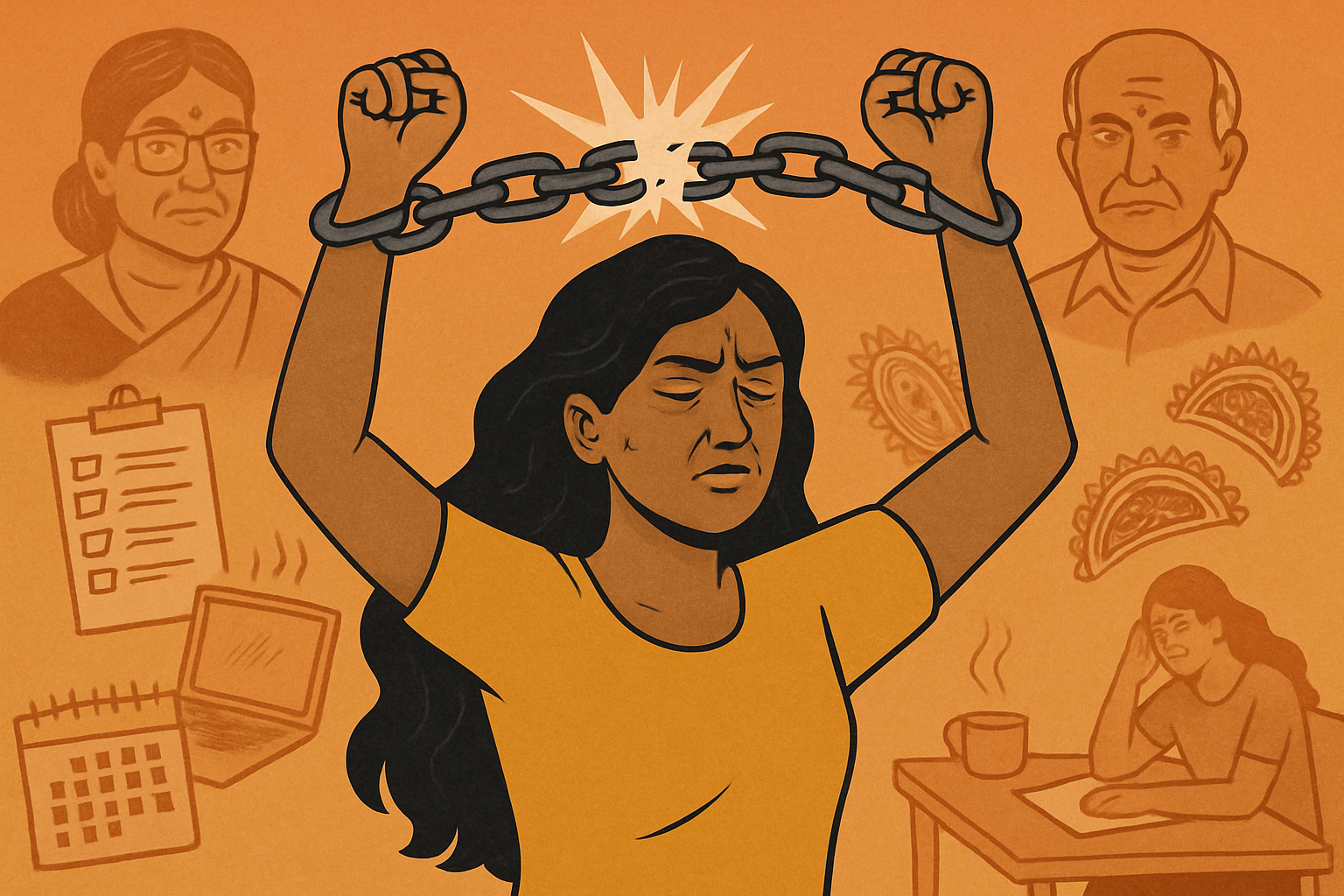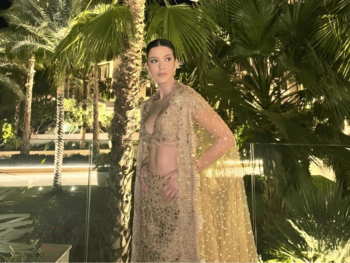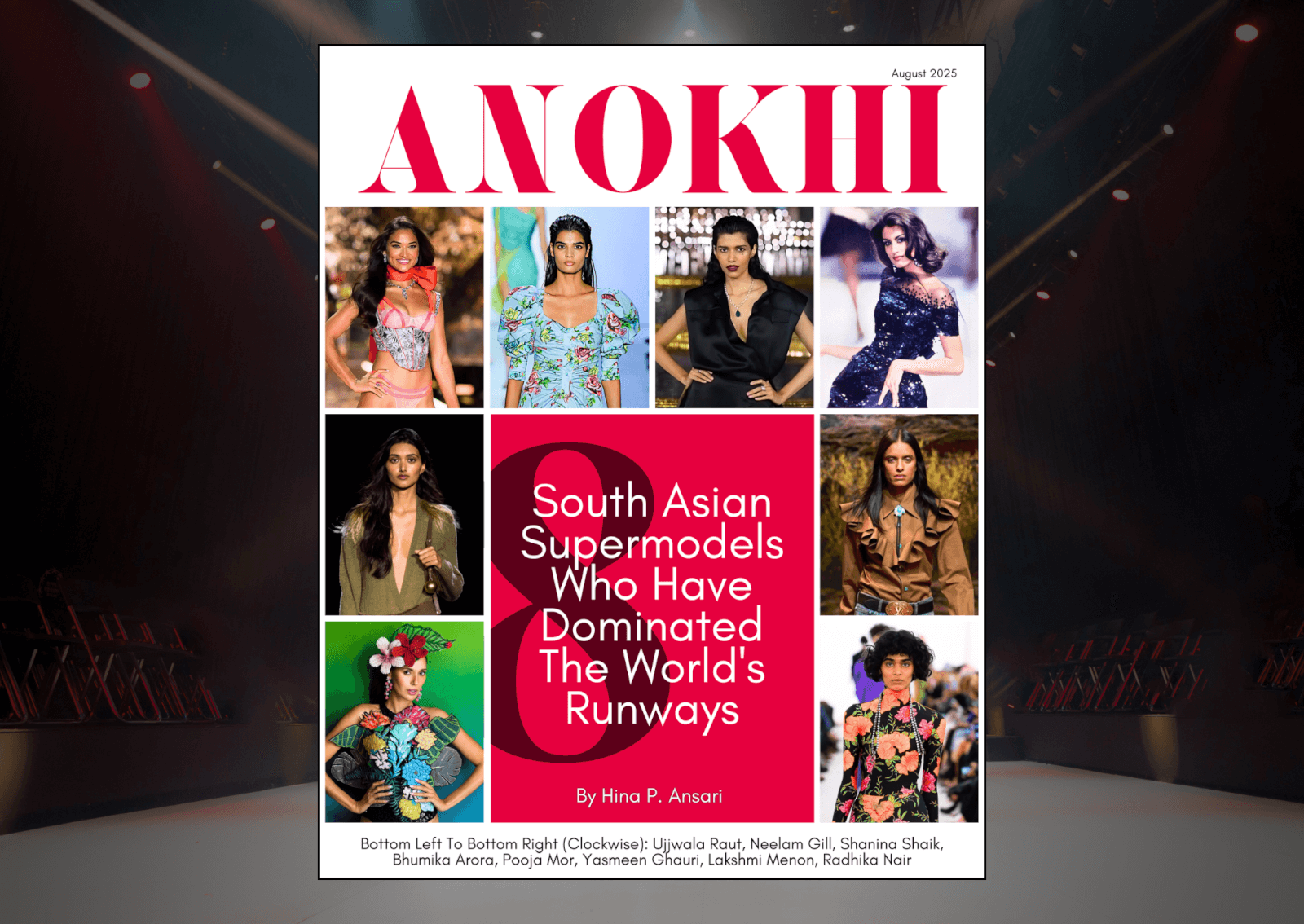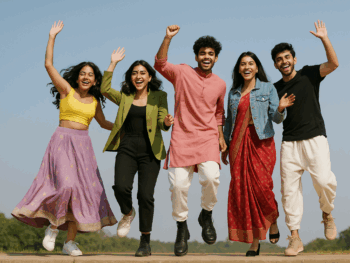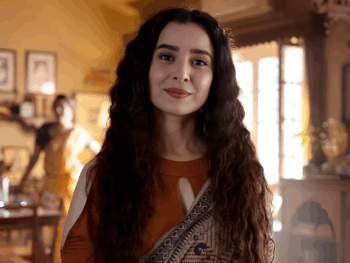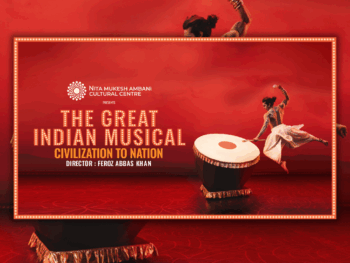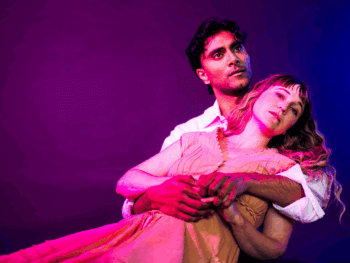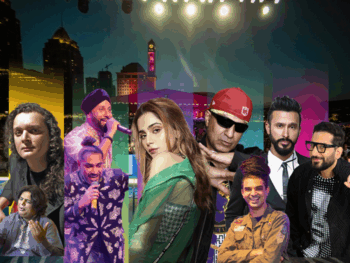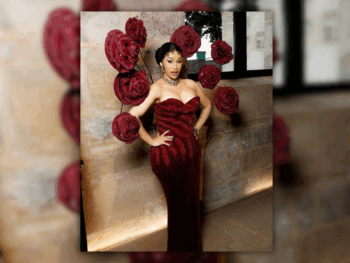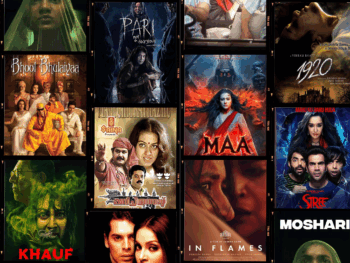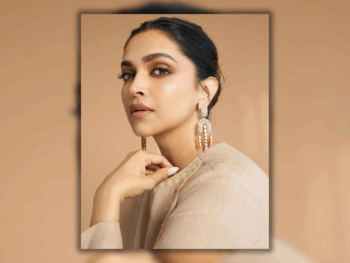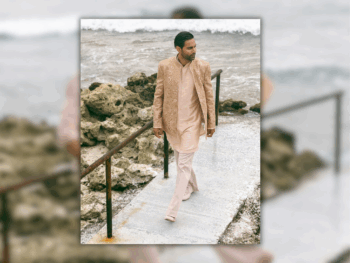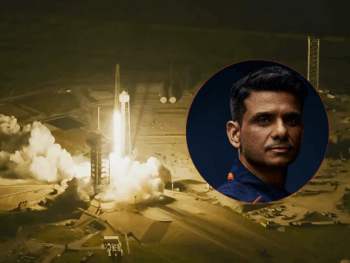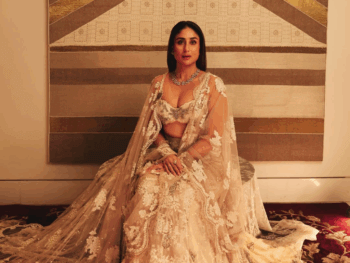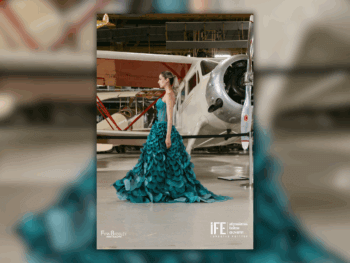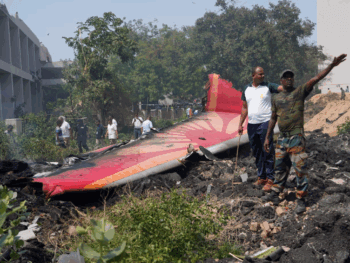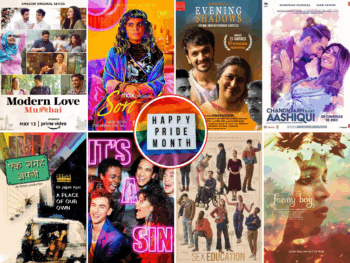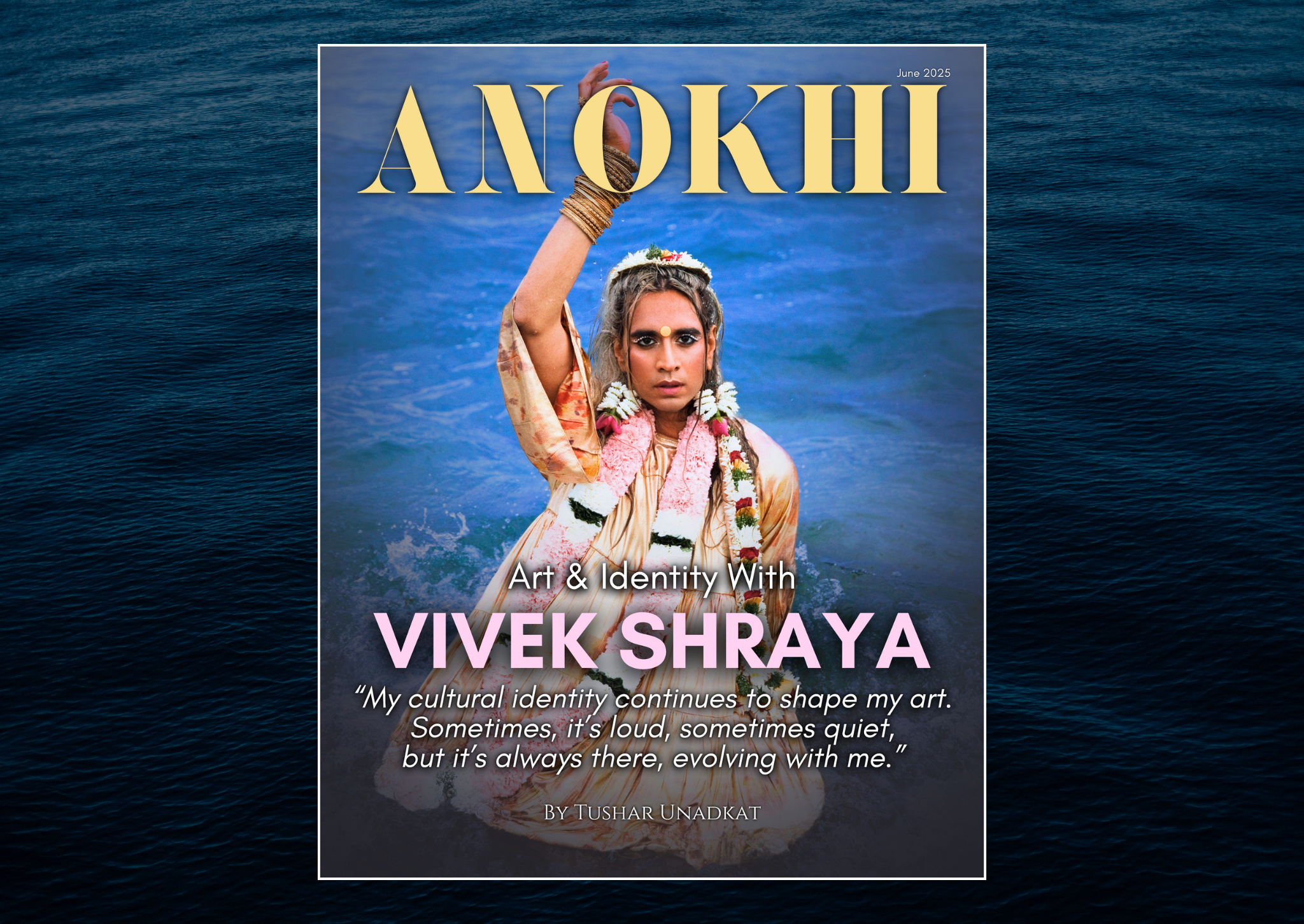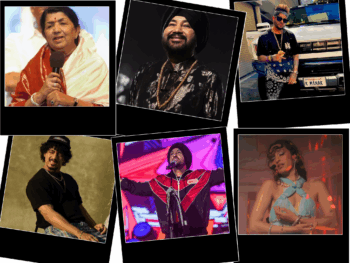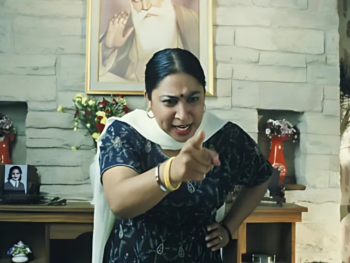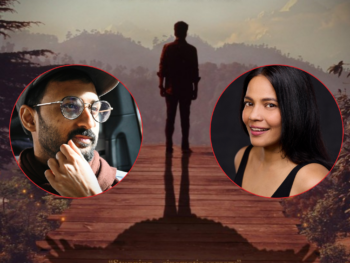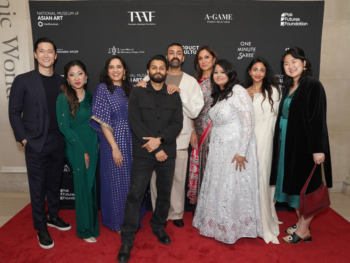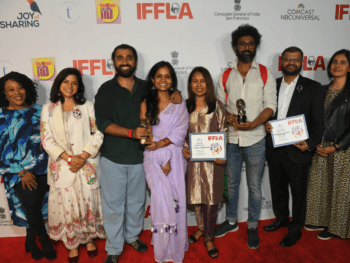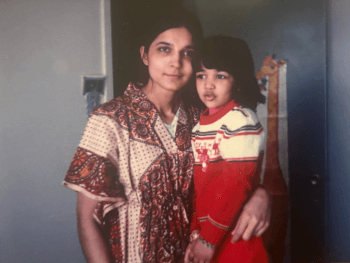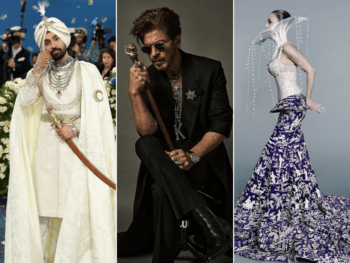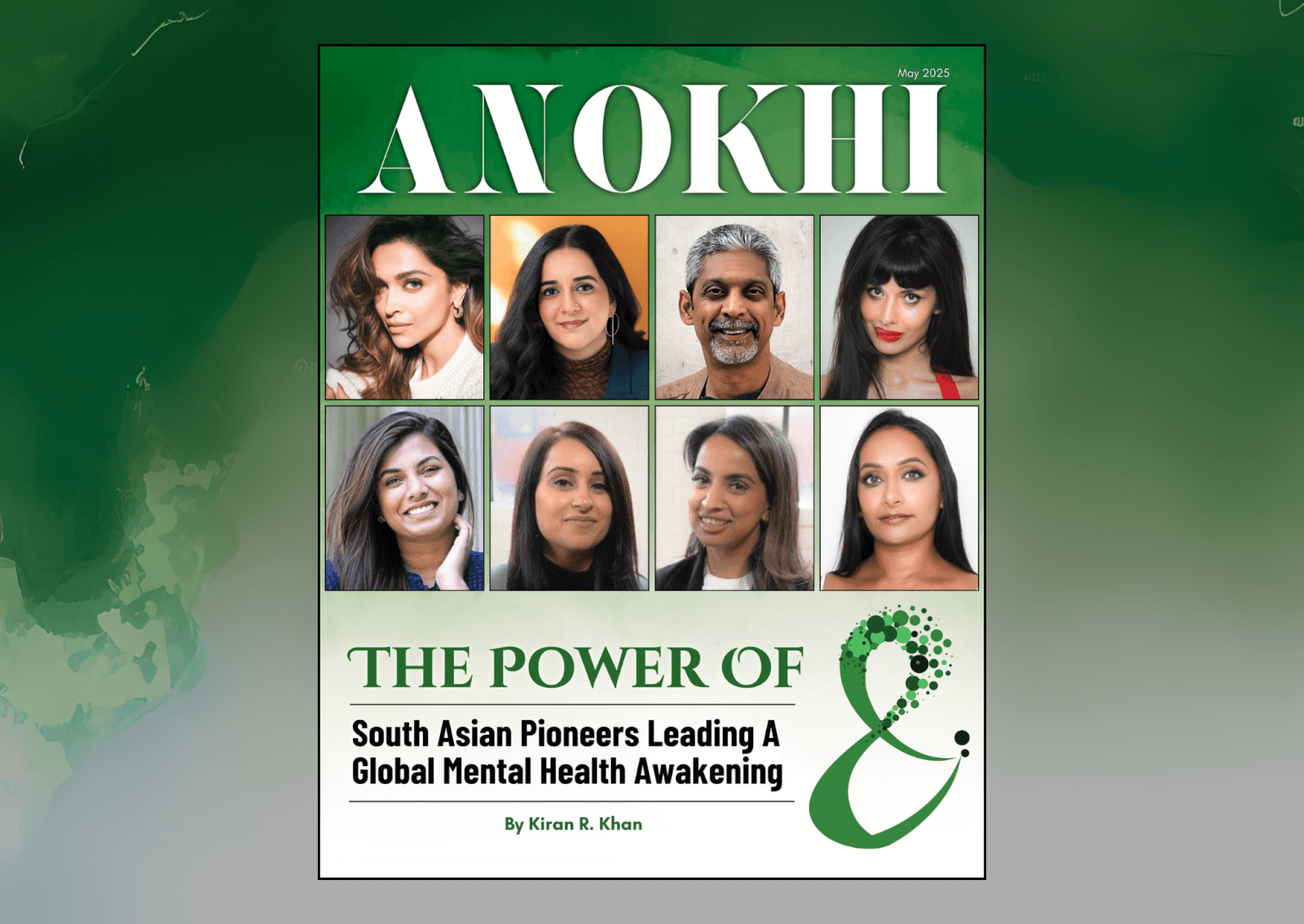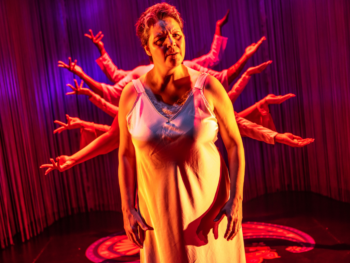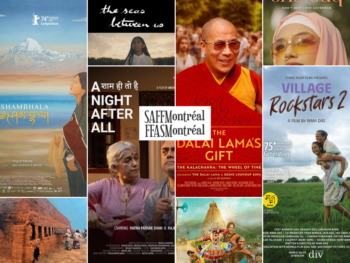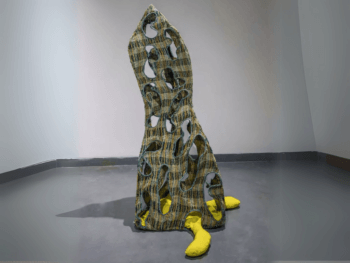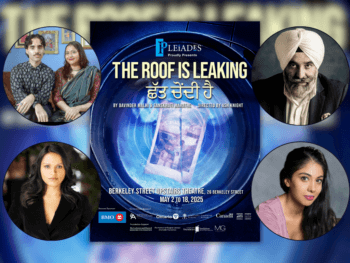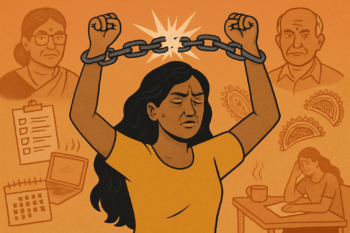Maestro Gingger Shankar Gives Her Musical Lineage On-Screen Love With “Nari”
Dec 18, 2016
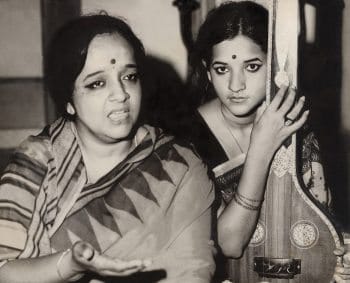
Toronto’s Aga Khan Museum and Reel Asian Film Festival joined forces to premiere Nari, a musical on-screen love letter directed by music maestro Gingger Shankar.
Gingger Shankar, the acclaimed singer, violinist, composer and songwriter who was born into one of the world’s most acclaimed musical families, is the only woman in the world to play the double violin.
She was in Toronto to showcase her film Nari, which commemorates the life of her mother Viji and grandmother Lakshmi, two women who collaborated with Ravi Shankar and George Harrison and in turn helped bring Indian music to the West in the 1970s. The Aga Khan Museum believes in the importance of original, contemporary and emerging work as part of their programming.
We asked the Aga Khan Museum’s head of performing arts, Amirali Alibhai, about the decision to host Gingger Shankar and her film. “We look for connections to our mandate and mission which is to present artists from Muslim cultures, including South Asia, Central Asia and really from the Iberian Peninsula to Western China and South East Asia,” Alibhai noted. “Gingger Shankar’s project focuses on the legacy of her mother and grandmother to South Asian Classical music – it offers a feminine gaze and also features live music as part of the experience. In general we look to programs that relate to our mission as well as our overall exhibition themes, which are often geographic in nature.”

The sold-out screening of Nari was followed by a performance by Gingger with Viji’s never-heard-before recordings. Umair Jaffar, the Aga Khan Museum’s performing arts manager, describes the memorable evening, “Nari was a beautiful interdisciplinary presentation of musician and multimedia. It showed never before seen photos and recordings of Viji and Lakshmi Shankar, two extraordinary artists who helped bring Indian music to the West in the 1970s through their close collaborations with Ravi Shankar. The presentation started with the short film with live heart-warming voiceover by Gingger. Following the screening a multimedia presentation with an on-screen presentation which was layered with live vocals, drums, Indian percussion, and Gingger’s unique double violin. This live performance infused Viji’s never-before-heard recordings layering with hip-hop flavors and Gingger’s violin solos.”
This is the third year that the Aga Khan Museum hosted an evening with the Reel Asian Film Festival which in itself was celebrating their 20th Anniversary. When asked about their partnership with the festival, Alibhai replied, “We have had two successful past events with the Reel Asian Film Festival – where new audiences are introduced to our Museum and our own visitors can have easy access to some of the really exciting programming that Reel Asian presents each year. We hope to be able to continue our emerging relationship with the festival and its audiences.”
Describing what he is hoping to achieve by being a part of Reel Asian Festival, he added, “We hope to bring innovative and relevant film and film-based work to the Aga Khan Museum and to be able to attract new and diverse audiences to our programming and venue in general.”
The Aga Khan Museum is excited about their upcoming Museum Wide project – Rebel Jester, Poet, Mystic Contemporary Persians. They are partnering with Tirgan Festival to present Mohsen Namjoo, the Bob Dylan of Iran and well as Sahba Motallebi, a master tar player along with Maneli Jamal, on guitar with them in early 2017 – these will take place at the Toronto Centre for the Arts. There will be some great programming focusing on artists of Iranian descent under this overall theme – that is playful and serious.

We chatted with Gingger about commemorating her incredible musical lineage onscreen.
Marriska Fernandes: Tell us about Nari.
Gingger Shankar: This project was created after my [late] grandmother (Indian vocalist) Lakshmi Shankar and my [late] mother Viji. I created it as a tribute to these women in the Shankar family, two extraordinary artists who helped bring Indian music to the West in the 1970s through their close collaborations with Ravi Shankar and George Harrison. In Sanskrit, “Nari” means both “woman” and “sacrifice.” As two female artists who grew up in a patriarchal society and tried to establish themselves in a male-dominated field, Lakshmi and Viji fought to overcome numerous challenges in both their artistic and personal lives as they were catapulted from conservative Indian culture into the stratosphere of American rock & roll. This project takes my mother’s unreleased vocals and we created a new album and film paying homage to them and showing a side of the story of Indian music and rock n roll that no one has ever seen.
MF: How important was it for you to tell this story commemorating the life of your mother and grandmother?
GS: It is the most important project I’ve ever done. It actually started as a scrapbook for myself, since I didn’t really know my mom as an adult and because I knew my grandma as ‘grandma,’ not this amazing artist. Once I started digging in to their history and realizing how much they paved a path for me and so many others, I knew I had to tell their story. I wanted everyone to know who these women were and what they contributed to the explosion of Indian music in to the West. They were groundbreakers in a very patriarchal system and country, yet their voices came through on every piece of music you heard during that time with Ravi Shankar and George Harrison. Since they both have passed away, I felt that it was my responsibility to tell their story.
Highlights from Nari screening and performance. Photo Credit: YouTube/Reel Asian Film Festival
MF: How did they help bring Indian music back to the 1970s?
GS: My grandmother and my mother were brought to London along with other members of the Indian orchestra by George and Ravi to record and perform. That collaboration culminated in the Shankar Family and Friends Album and tours that brought Indian music to the West. They performed every day to new audiences. My mother sang, my grandmother sang, conducted the orchestras and did the arrangements. Every album cover or picture you see from that time, the two women who are right at the center are my mother and grandmother. Even I had to go back to things I had seen as a child and look at them again to realize how involved these two were, because (similar to most women) they never bragged about it or talked about it very much! And when it hit me that after all these tours that the men became Indian classical superstars and the women faded in to the background, I knew I had to tell this part of the story.
MF: Your mother’s never-heard-before recording was a beautiful and touching element. Can you tell us about that?
GS: She made these recordings as a teenager. They were songs that were never released and she never got to live the musical life she wanted. As soon as I heard the recordings, I felt so connected to my mother, and I knew I needed to make music with them. I never really got to sing with her or write with her when she was alive (aside from singing kid’s songs or learning from her), and I wanted to pay tribute to this exquisite woman and her voice with new songs.
MF: What were you hoping audiences would take away from Nari?
GS: I want them to know how incredible my mother and grandmother were, and think about them the next time they listen to those old recordings. I want people to feel connected to the fact that these stories of women are universal. That we pass our stories and songs down and give strength to the next generations, even when we’re forgotten.
MF: You’re the only woman in the world to play the double violin. What does that honor feel like?
GS: I’ve been blessed throughout my career with the musicians I’ve met, with the shows I’ve done and the places I’ve gotten to travel to. The double violin is another wonderful gift I think I’ve had during my career. It is such a beautiful instrument with such a unique sound that covers the entire orchestra range, it really does bring out my melodies in such a special way.
MF: Can you talk a bit about partnering with the Aga Khan Museum?
GS: I love the Aga Khan Museum! I performed there right after they opened back in 2012 with Himalaya Song (with Mridu Chandra and Dave Liang) for Reel Asian, and I fell in love with the space. It is such a beautiful space, and the stage really has a special energy. So as soon as we started talking with Reel Asian about coming back, it made absolute sense to perform there again. It really was an incredible show and I loved being back there!
MF: Do the challenges that your mother and grandmother faced back then when it was a male dominated field still exist?
GS: Absolutely. As a woman, you are constantly asked about the balance of family and work. Men don’t get asked the same questions we do. In LA, in India, anywhere I go, I see women dealing with those societal pressures. To feel guilty if they work instead of raising a family, to feel pressured if they’re not married. To feel less than if they don’t have children. I don’t think that’s changed very much. And in terms of work, there are so many challenges women face in order to get the same job or be paid the same. I’ve seen the challenges being a woman musician. And as a female film composer, there are less than one per cent of us working on the top films in Hollywood.
MF: What are some of the challenges you find yourself facing in today’s artistic scene?
GS: I think for me, I’ve always tried to break out of the boxes people put me in —Indian, classical, woman, etc. I’ve always been a hybrid of things, and I’ve had to fight for my own voice. I think it’s getting easier as the world becomes smaller and smaller. The biggest challenge is the mainstream, and how to exist in it being unique.
MF: What’s next for you?
GS: I am finishing the Nari album, which will come out next year. We’ll be doing a lot of shows around that. A film called Heartbeats (directed by Duane Adler) will be releasing early next year in India that I did music and songs for (along with Roc Nation/ Jay-Z). The documentary We Will Rise featuring the First Lady Michelle Obama that I scored will be showing on CNN and other places.
Main Image Photo Credit: SongsofNari.com
Author
Marriska (@marriska.fernandes) is an entertainment expert who has been creating celebrity, movies and pop culture content for digital outlets for over ten years. From reporting headline-grabbing celebrity news to reviewing movies to interviewing Hollywood and Bollywood’s finest actors and industry...
COMMENTS
YOU MAY ALSO LIKE
Newsletter Sign Up
Subscribe to our FREE newsletter for all of the latest news, articles, and videos delivered directly to your inbox each day!




